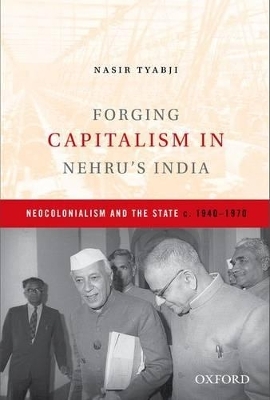
Forging Capitalism in Nehru's India
OUP India (Verlag)
978-0-19-945759-5 (ISBN)
The prospects for industrial development in the early years of independent India were plagued by a number of interrelated issues. Indian industrialists of the post-Independence era had either evolved from the ranks of merchants and moneylenders of the colonial period or from wartime speculators and hoarders. In general, their interests lay in short-term speculative gains rather than in sustained industrial growth.
In addition, the impoverished condition of the peasantry resulted in the prospects of attractive returns through the diversion of urban resources to the rural moneylending market. Let alone preventing fresh industrial investment, this diversion bled the industrial sector of funds to cover even the replacement costs of plant and machinery. Finally, because of the nexus long established between some sections of the owners of capital and the Congress party, decisive corrective intervention by the government after Independence became a problematic political task.
This volume examines the processes by which these problems, exacerbated by colonial nonchalance, were comprehended by the political executive in independent India, and shows how measures of social engineering were attempted in order to reform the more extreme cases of capitalist cupidity.
Nasir Tyabji is an economic historian with interests in the areas of technology, innovation, and the social aspects of industrialization. After some years spent at the Madras Institute of Development Studies, Chennai, and the Nehru Memorial Museum and Library, New Delhi, he taught at the Jawaharlal Nehru University, New Delhi. Subsequently, he moved to Jamia Millia Islamia, New Delhi, and retired as the Director and Professor from the Centre for Jawaharlal Nehru Studies. He continues to edit the centre's journal History and Sociology of South Asia.
Contents ; Preface ; Introduction ; 1. Capital Accumulation under Colonial Economy and Company Law ; 2. Inculcating Corporate Responsibility: The Bombay Plan as Social Engineering ; 3. Liaquat Ali Khanas 1947 Budget and the Corporate Response ; 4. Administrative Attempts to Channel Accumulations: The Income Tax Investigation Commission ; 5. Sholapur Mills and the Initiation of Social Engineering ; 6. Private Industry and the Second Five-Year Plan:The Dalmia-Jain and Mundhra Episodes ; 7. Denouement: The Final Abolition of Managing Agencies ; Index ; About the Author
| Verlagsort | New Delhi |
|---|---|
| Sprache | englisch |
| Maße | 149 x 225 mm |
| Gewicht | 392 g |
| Themenwelt | Sozialwissenschaften ► Politik / Verwaltung ► Politische Theorie |
| Wirtschaft ► Volkswirtschaftslehre ► Wirtschaftspolitik | |
| ISBN-10 | 0-19-945759-X / 019945759X |
| ISBN-13 | 978-0-19-945759-5 / 9780199457595 |
| Zustand | Neuware |
| Haben Sie eine Frage zum Produkt? |
aus dem Bereich


